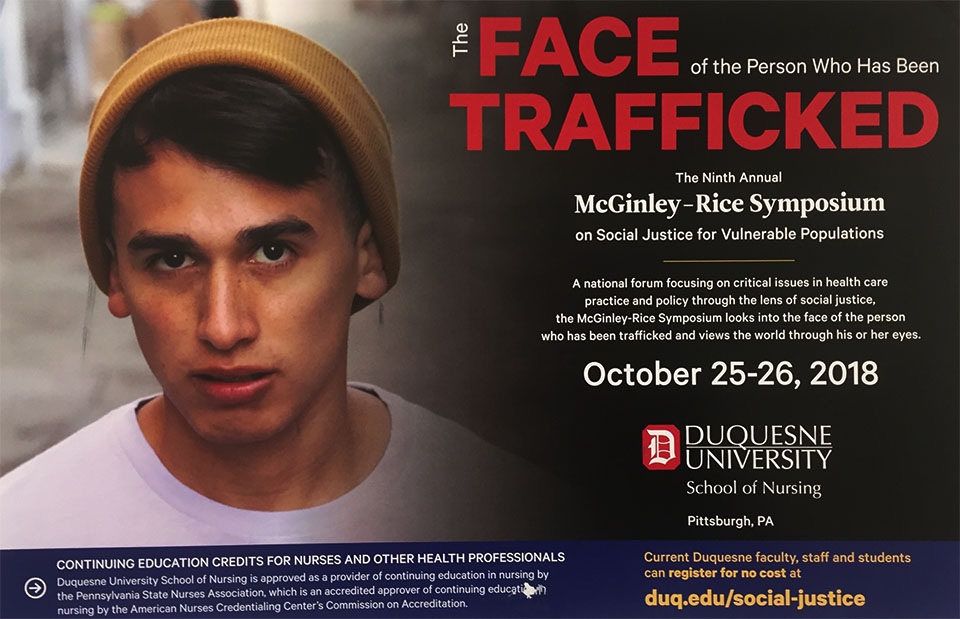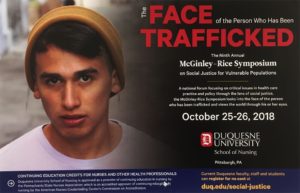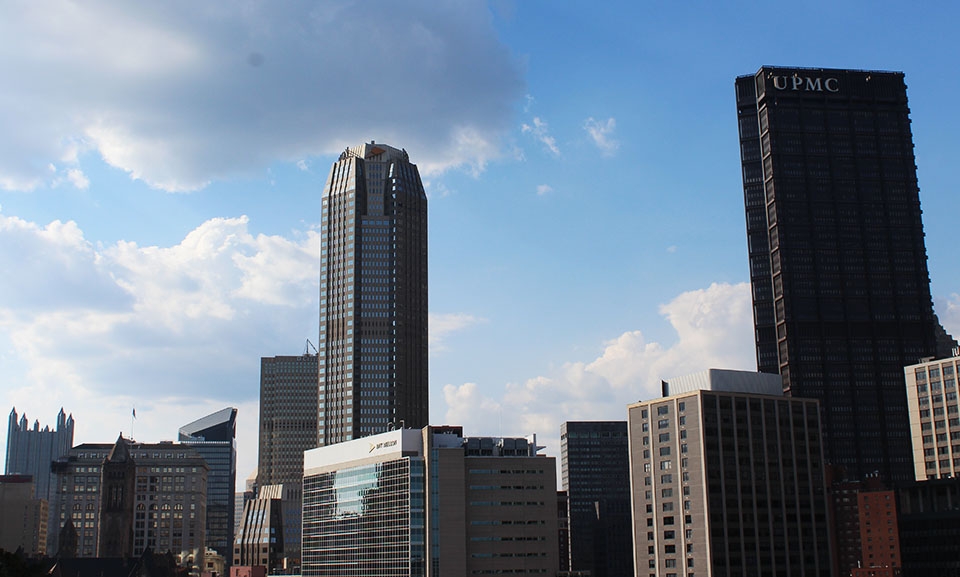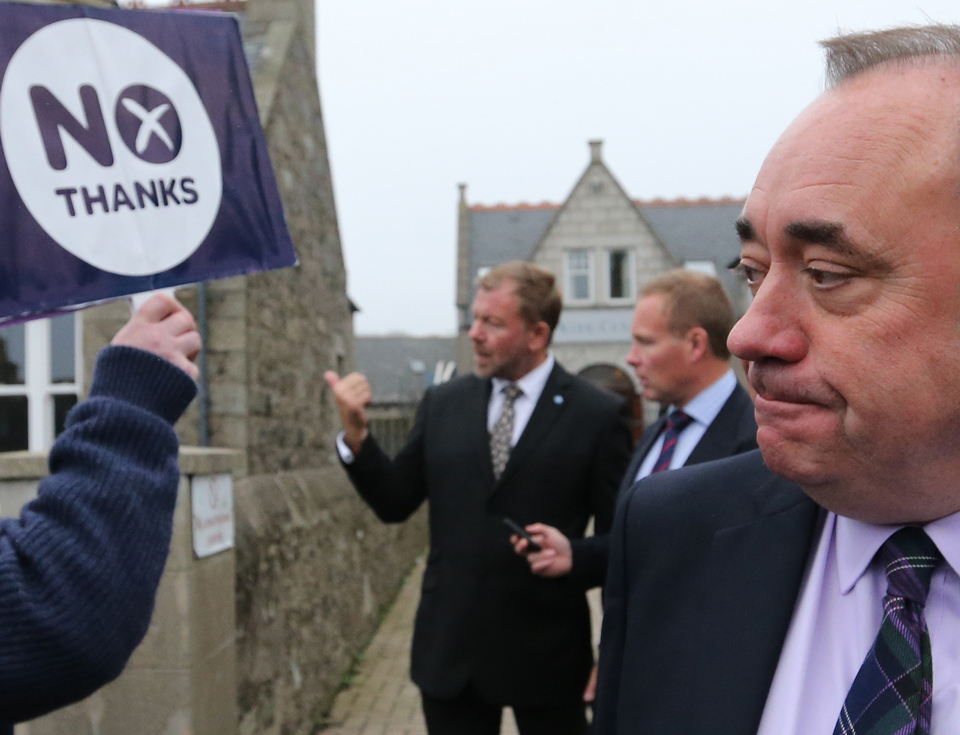
The McGinley-Rice Symposium on Justice for Vulnerable Populations was held in the Charles J. Dougherty Ballroom on Oct. 25 and 26, focusing on human trafficking.

The McGinley-Rice Symposium on Justice for Vulnerable Populations was held in the Charles J. Dougherty Ballroom on Oct. 25 and 26, focusing on human trafficking.
Meredith Blakely | Staff Writer
11/01/18
Human trafficking is a topic increasingly discussed across the nation, and Duquesne is taking part in the discussion.
This year’s ninth annual McGinley-Rice Symposium on Justice for Vulnerable Populations focused on the topic of human trafficking, titled, “The Face of the Person Who Has Been Trafficked.”
The McGinley-Rice Symposium on Social Justice for Vulnerable Populations is an annual seminar held for health science professionals that discusses health care social justice. Seminars in past years have explored topics such as addiction, violence and disabilities.
To kick off the conference, there was a screening of the film From Liberty to Captivity at 6:30 p.m. on Wednesday, Oct. 24. The film explored the painful reality of those who are sex-trafficked in Pennsylvania.
The remainder of the seminar took place on Thursday, Oct. 25, and Friday, Oct. 26, in the Charles J. Dougherty Ballroom in Duquesne’s Power Center, where attendees listened to keynote addresses, panels and breakout sessions, offering participants the chance to select which sessions they wished to attend.
Many speakers attended the event, including keynote speakers Mary Burke, psychology professor at Carlow University; Debbie Wright, president of Do What’s Wright Production Company and producer of From Liberty to Captivity; Gary Caldwell, associate producer of From Liberty to Captivity; Elizabeth Miller, professor of pediatrics and chief of division of adolescent and young adult medicine at Children’s Hospital of Pittsburgh; Kaitlyn Weismann, staff operations specialist at FBI Pittsburgh Division and Brother Michael Gosch, co-founder and co-director of the Viator House of Hospitality. These speakers — professors, producers, founders of organizations and those who work to support trafficking investigations — all work towards the efforts of preventing and distinguishing human trafficking.
The Viator House of Hospitality, which Gosch co-founded in January 2017, is a place where youth who are in need of refuge are welcomed to stay. Many of the youth residing there are victims of human trafficking.
During Gosch’s address, he explained the situation of many of the youth he works with, saying, “Many do not have family in the U.S. That is why they are referred to us.”
The event was organized by faculty and staff of the nursing school, in addition to Sister Rosemary Donley, professor at Duquesne.
Donley is also the Jacques Laval Endowed Chair for Justice for Vulnerable Populations, representing the mission of Duquesne University in addressing social justice by her commitment to helping those in need.
“Human trafficking is an unrecognized, under-reported and lucrative crime,” Donley said. “It is a major threat to human dignity and physical and mental health. Once on the streets, many die within seven years.”
Donley stressed that individuals who have been trafficked are not at fault for the situations they experienced.
“Persons who are trafficked are victims. They need compassion and understanding, not judgment or criticism,” Donley said. “Their strengths need to be emphasized and supported.”




